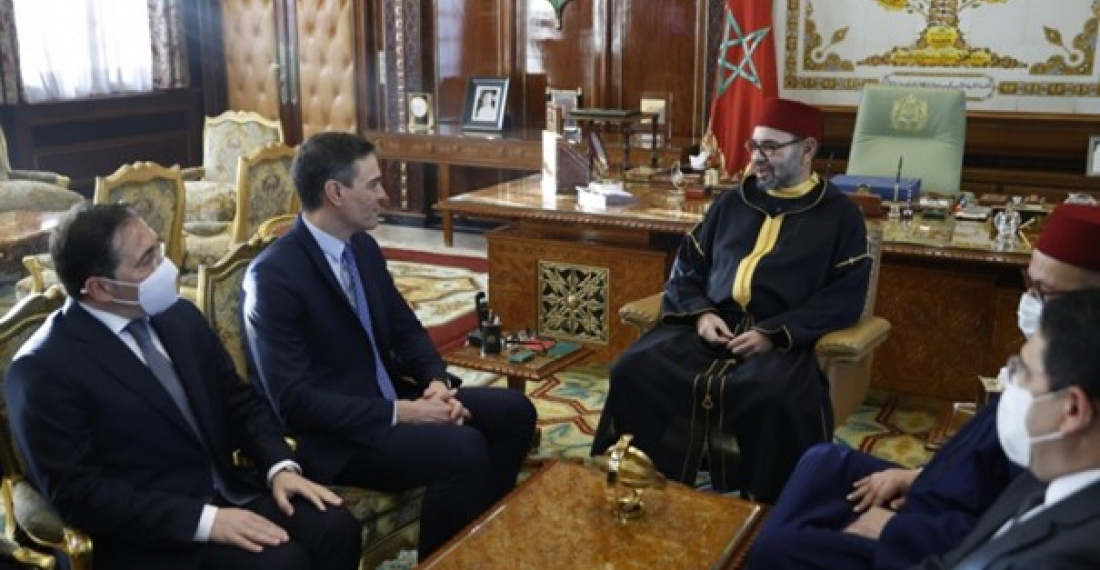Spanish Prime Minister Pedro Sanchez met on Thursday (7 April), with Moroccan King Mohammed VI, as the two countries seek to resolve a diplomatic dispute that broke out last year.
Last month, Madrid undertook a historic diplomatic shift by supporting the autonomy plan for Western Sahara proposed by Rabat. The autonomy plan was considered by Spain as the most "serious, realistic and credible" basis for a peaceful solution to the disputed territory between Morocco and Algeria, which supports independence for the territory. The decision to support the Moroccan position was badly received by Algiers, leading to the recall of the Algerian ambassador to Spain.
Western Sahara is a former Spanish colony classified as "non-autonomous " by the United Nations, with most of its territory under Moroccan control. Since the 1976 war, Sahrawi independence fighters of the Polisario Front, a movement supported by Algiers have tried to resist Moroccan occupation.
The Cherifian Kingdom, after having welcomed the words of its main commercial partner, officially invited the Spanish Prime Minister this week to build on this momentum to ease their year-long diplomatic tensions.
The crisis between Morocco and Spain was triggered last April when Brahim Ghali, leader of the Polisairo Front and public enemy of the Moroccan kingdom, was allowed to be hospitalised in Spain after testing positive to Covid.
In reaction, Moroccan border police let approximately 10,000 migrants from sub-Saharan Africa pass through on their way the Spanish enclave city of Ceuta, on the North African coast, leading to scenes of chaos
Observers expect Pedro Sanchez's visit to resume maritime connections between the two countries, suspended during the crisis.
In Madrid, it is also hoped that Rabat will give up, or at least not pursue too vocally its claim to the two enclaves of Ceuta and Melilla.
The United States, France, Germany, Israel and other countries in Africa and the Arab world have recently expressed similar positions to the one now being pursued by Spain, which essentially endorses the Moroccan plan for the Sahara.
While the Polisario Front, a movement of fighters seeking independence for the territory and supported by Algiers, wants a referendum on the independence question, Rabat says its 2007 autonomy initiative is the most it can do as a political solution to the conflict.
The United Nations has pressed both parties to negotiate within a spirit of compromise towards a “mutually acceptable solution” and has stopped mentioning the referendum option.







